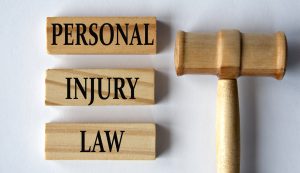A personal injury can strike anyone, anywhere. Be it at the workplace, out in the open, at a business, or while you’re on government property. The process of dealing with each of these types of personal injuries differs, and having the right knowledge can make your case all the more robust. If your injury was caused due to another party’s negligence, then you are most likely entitled to compensation.
The law expects us to exercise care and responsibility toward those around us, cultivating an orderly, safe society. Sadly, expectations may fail to mirror actual reality. You may be a victim of an accident directly resulting from others' negligent actions. In such a case, you can sue the responsible party, demanding restitution for the damages you suffered because of their reckless behavior. If you’re looking for legal representation, consider employing the services of Rich Godshall of Ostroff Godshall Injury and Accident Lawyers.
In this comprehensive blog, you will learn about the art of personal injury litigation, its significance, and the elements that make up a successful case.
Why Personal Injury Litigation Exists
A favourable outcome is definitely possible in personal injury litigation, but winning the case can be difficult. For one, you, the plaintiff, have the burden of proof, meaning you must prove beyond a reasonable doubt that the other party acted irresponsibly and caused you harm.
As mentioned above, personal injury litigation exists to redress victims who have suffered harm due to the reckless actions of others. But this branch of the Pennsylvania civil justice system also serves other purposes, as you will see below:
- Accountability: It exists to hold negligent individuals accountable for their deeds. If found guilty, they may be ordered to repay the victims through fines.
- Monetary compensation: Due to mounting medical bills, victims may face unprecedented financial woes. Personal injury litigation exists to reimburse these expenses, ultimately helping them recover.
- Deterrence: Finally, personal injury law aids in cultivating a sense of responsibility and order by sending a message of deterrence. The fear of legal battles is enough to encourage individuals to be accountable for their conduct.
Elements of a Successful Personal Injury Claim
Negligence forms a core tenet of all personal injury claims. For a successful injury claim, there are certain things you must know. Below are the four concepts that govern these cases:
- Duty of care: As a plaintiff, you must prove that the defendant owes you a duty of care. For instance, drivers are responsible for adhering to road discipline and protecting other road users. Similarly, business owners are responsible for keeping their clientele safe.
- Breach of duty of care: The second element involves demonstrating the responsible party failed to honor their obligation of care toward you. For instance, motorists may violate their responsibility by driving recklessly and not following traffic laws, putting other road users at risk.
- Causation: Next, you must establish the responsible party's negligent behavior caused the accident that led to your injuries. For instance, a tailgating driver may have rear-ended you, causing whiplash.
- Damages: Finally, you must prove you suffered actual damages due to the incident, the most significant of which is medical expenses when seeking treatment.
Without clearly defining these four elements, you have no case. Whether it is a dog bite, a malfunctioned product, a car accident, or medical malpractice, you must successfully substantiate these four pillars of negligence to win your claim. A good lawyer can expertly handle all these matters without having to face any major hurdles.
Why You Need an Attorney
Personal injury litigation can be complex, especially for the untrained individual. That is why you're better off consulting a knowledgeable Pennsylvania personal injury attorney. They are adept at dealing with the ins and outs of this branch of civil justice, making their guidance invaluable.
Furthermore, these professionals are trained in the art of negotiation, which means they can negotiate with insurance adjusters. They will accurately calculate the worth of your damages and fight for nothing less.
Conclusion
In short, your attorney can guide you through the claims process, handling all the complex nitty-gritty leaving ample time to recover physically and mentally. All in all, going through a personal injury can be a trying time but with the right legal help, matters can be resolved seamlessly.





















